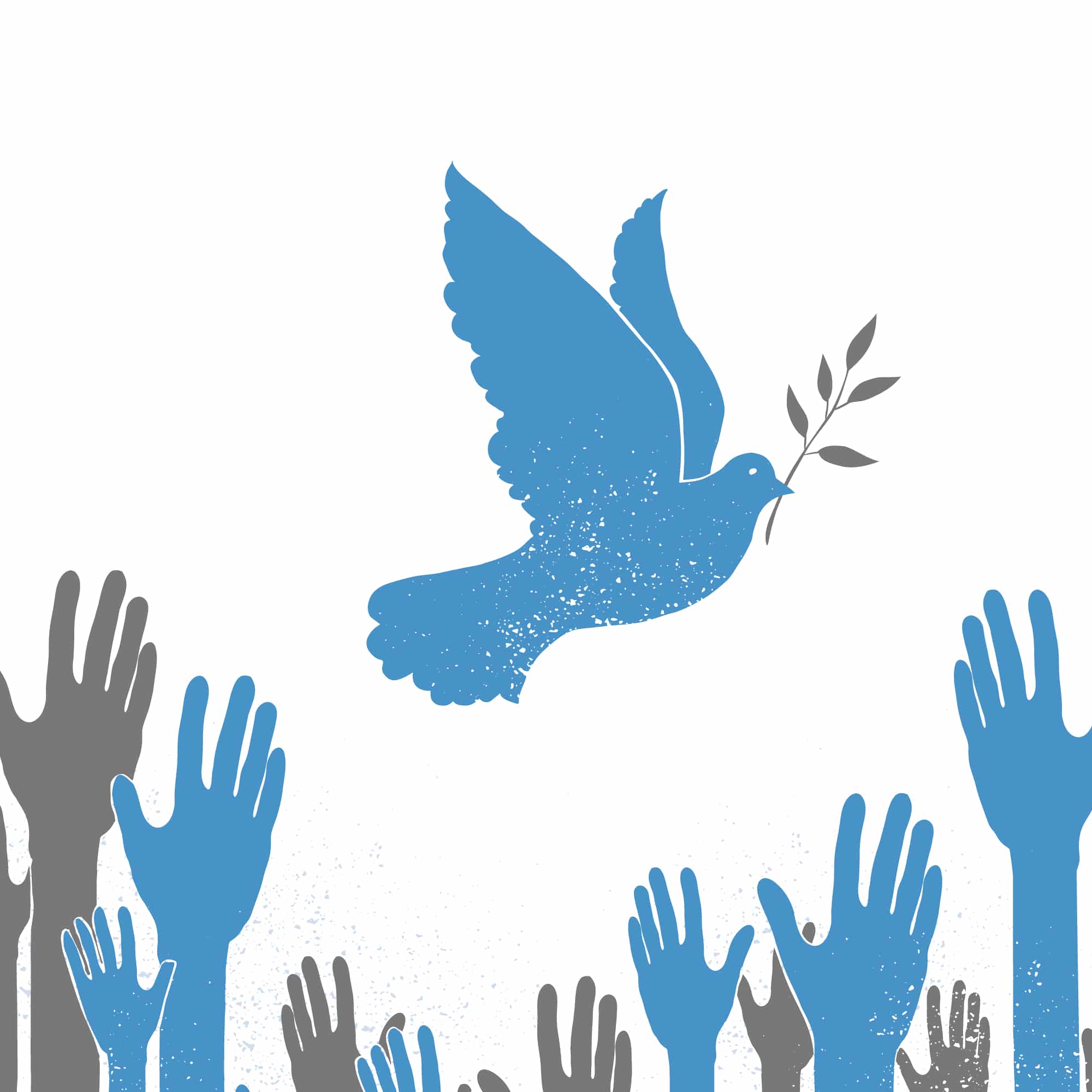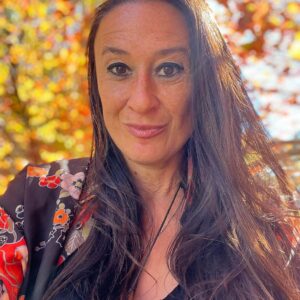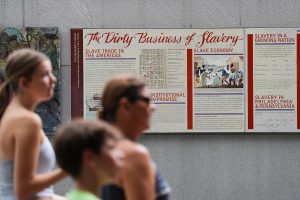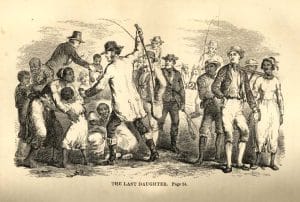The last few months have been very difficult for Jews and Muslims around the world. As the war in Israel and Gaza rages on the international stage, here in the United States, we are dealing with a huge uptick in both antisemitism and Islamophobia. The hatred directed at both of our communities has resulted in deep pain that unfortunately is often misdirected at each other.
There’s a story in my family about my Saba (Grandfather), a tall majestic man who commanded the attention of every room he entered. My Saba’s family had lived in Libya for generations. He had built up a profitable business buying and selling merchandise throughout the Middle East. While being Jewish meant that my family were treated as second class citizens in Libya, they still managed to live a fairly peaceful and comfortable life. My Saba and Safta (grandmother) lived in a spacious home near Tripoli with their six daughters.

Libya had been under Italian rule since 1911. During the War, Jews suffered extreme antisemitism under Mussolini. My family was forced into the Jadu concentration camp where hundreds of Jews died.
When the war ended, the Jewish community suffered devastating pogroms at the hands of Muslims, making it impossible for Jews to live safely in the place that many had called home for hundreds of years. Eventually, my family was expelled.
It didn’t matter that they had been upstanding citizens. It didn’t matter that my Saba was known for his booming laugh or that my Safta gave her best fruits and vegetables to the poor. All that counted was that they were “dirty Jews.”
And so … after months of fearing for their lives, my entire family (minus a baby that was killed in the camps) were expelled from Libya with only what they could carry on their body. My mom’s first memory is of being a tiny girl hiding in a closet hearing men yelling in Arabic “Where are the Jews? Let’s kill them.”
READ: Antisemitism Is a Threat to Us All — And to Democracy
Eventually, my mom and her family arrived in Israel as refugees where they were placed in a city of tents. The tents were flimsy shelters with no amenities. Animals wandered freely in and out among the residents. One time a rooster knocked over a kerosene lamp, setting my family’s tent on fire. Child services deemed the place unsafe for children and my mother was taken away from her family to live in a kibbutz for over a year.
Finally, after years of living under these conditions, my grandparents were reunited with their daughter (my mother) and given a tiny one bedroom home to live in … a far cry from the large home they’d owned in Libya.
One day, shortly after my grandparents had moved into their new home, an Arab man knocked on the door. He told my Saba that this had been the land where his family had lived for generations. The man said that he and his wife had fled during the war, but now he’d returned and wanted his land back.
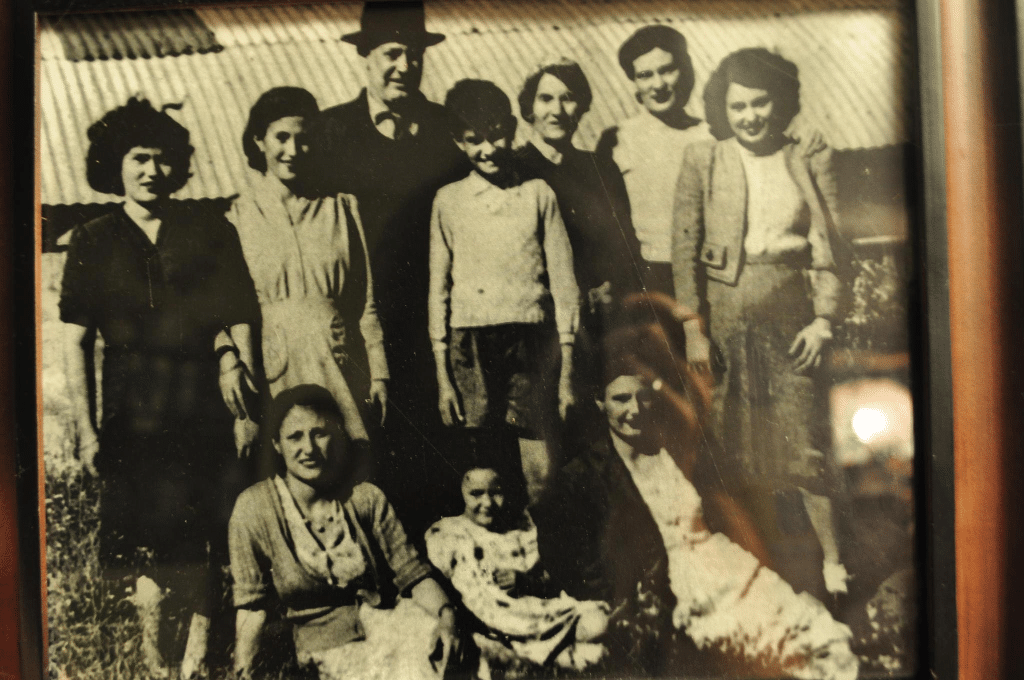
My Saba reached out his big hand, patted the man on the arm and said, “Of course, of course. You can have this house back as soon as you give me back the one you stole from me in Libya.”
Now, of course that man hadn’t taken my Saba’s land. It wasn’t this man’s fault that 6 million Jews had just been murdered in Europe and hundreds of thousands more displaced in the Middle East. He was just a man who had lost his home. His hurt was very real and present. And so was my Saba’s.
This story about my Saba reminds me a little of where we find ourselves – in Central Bucks and across the country – today. October 7 was the biggest loss of Jewish life since the Holocaust. Every single person in my Israeli family knew someone who died or was kidnapped.
The deaths were harrowing. The loss is unfathomable.
The war that followed the attacks on October 7 has devastated Gaza. Tens of thousands of lives lost. Entire families killed and communities destroyed.
The deaths are harrowing. The loss is unfathomable.
The trauma of both communities is so deep that we feel it here, oceans away, in our homes in our schools.
Both Jewish and Muslim people are experiencing pain for reasons that are largely out of our control. That feeling of helplessness can cause its own pain. We want to do something, to ease the suffering of our people. And yet, we’re not in charge, not of Israel or Gaza, not even of our own country.
So we join protests and we make social media posts and we talk to anyone who will listen to try to gain back some sense of control, to try to lessen the pain. And it helps … it does. But, sometimes, in our quest to lessen our own pain, we hurt others, we do more damage.
I will tell you that as a Jewish and Israeli person, seeing social media posts and chants that glorify the murder of Jews or compare us to Nazis has been deeply painful. It is very difficult for me to understand how people I considered friends and allies can turn a blind eye or shrug off these statements as “resistance to white colonizers.” My family are not white colonizers. They are brown Jews who have suffered deeply at the hands of Italian and Muslim leaders until finally finding a safe place to land in Israel. They are not alone. 70 percent of Israelis are People of color, hailing from countries across the Middle East where they were also persecuted and expelled. The others mostly arrived as refugees fleeing a genocide in Europe.
I understand that Muslim people have their own deep traumas, their own stories of injustice, their own anger. I know that they have been subjected to discrimination both in Israel and here in America. I want to hold space for their pain and I want them to hold space for mine. But, how can we do that when the gap between our communities is widening so much that only arrows seem to make it over the divide?
I will admit that things feel pretty daunting right now. But, what I’ve learned over the past few years is that sometimes the easiest way to overcome adversity is to unite against a common enemy. In the last few elections both in this country and our local community, the enemy has been extremism. Many of us banded together to protect our community from an extremist attack on our public schools. We were not fighting individual people or even a political party, we were fighting against an ideology of intolerance, an ideology that hurt all of us, particularly our most vulnerable students.
I would argue that this same fight against extremism is what’s happening on an international scale right now.
It’s extremism that led to the horrific attacks on October 7, extremism that led to harmful policies against Palestinians and a war that has devastated the region.
READ: Local Jewish Group Condemns Trump’s Anti-Semitic Rant
It is extremism that has ignited this war and extremism that won’t let it end.
When we allow our trauma to turn into hate and be misdirected towards each other, we push each other further apart, we unintentionally contribute to this extremism.
There are ways to protest war without blaming each other, ways to talk about our pain without shooting daggers, ways for us to unite against extremism. Unfortunately, the voices calling for unity are being drowned out by louder, more aggressive ones. When aggressive voices dominate the scene, people feel forced into tribalism and the gap between us gets bigger.
I am seeing progressive Jews turning further to the Right, Muslims threatening not to vote at all. I am seeing both of our communities moving away from each other, finding safety within our own tribes. I am seeing wedges forming between us that allow more extremism to take hold, wedges that threaten our collective future.
Insisting that you have to be pro-Palestinian or pro-Israeli drives a wedge between us. Yelling chants that deny either people a right to the land they live on drives a wedge between us. Blaming people for the actions of governments drives a wedge between us.
There has to be a better way…
In Israel, there’s a group called Standing Together that brings together Arabs and Jews to fight against extremism in their respective societies. Recently, they got together to stop settlers from stealing humanitarian aid meant to be delivered to Gaza. This was a concrete action that brought immediate help to people in need… and they accomplished it by working together, not casting blame on each other.
These are people living right in the heart of the conflict, people who had to overcome enormous personal pain and trauma to unite against extremism.
Their unity gives me hope that there is a way forward in the Middle East. Their unity gives me hope that we here can find ways to push extremism out of the conversation and focus on our shared goal of peace and equity.
Their unity gives me hope.
